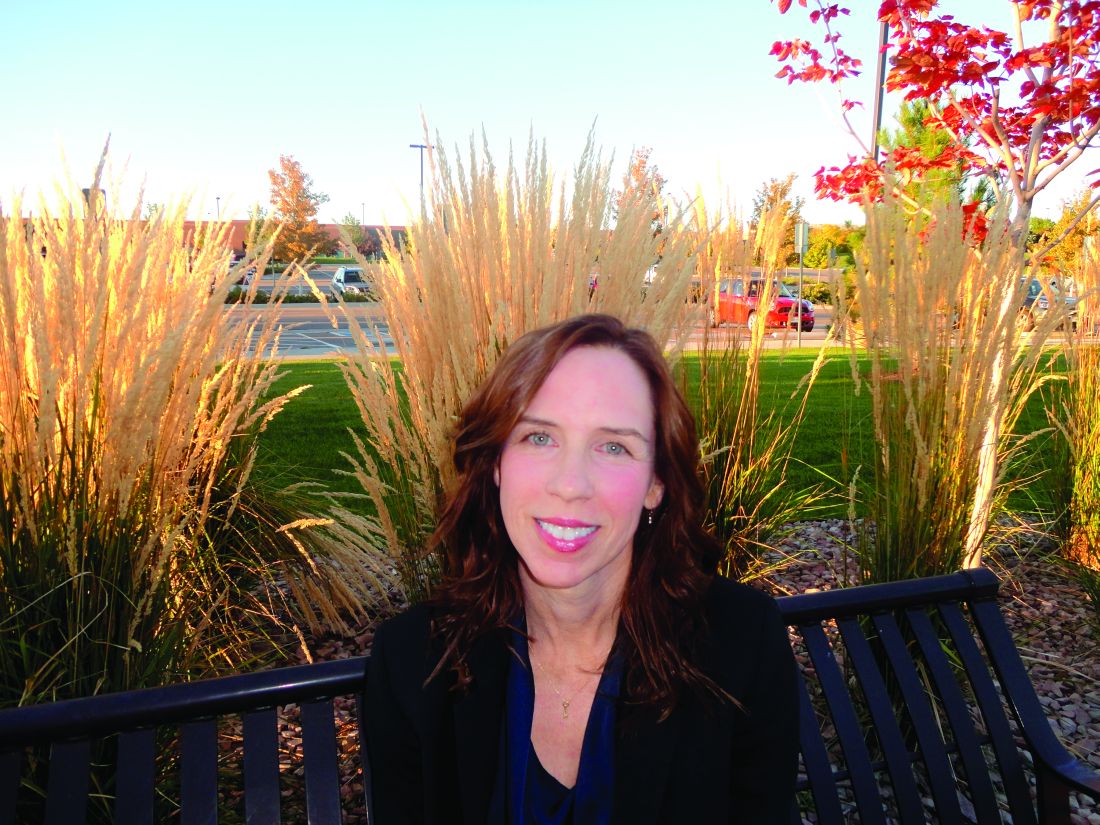User login
The long wait for the introduction of the C6 hospitalist specialty code has ended. If you are a provider, hospital, or hospitalist administrator, this new specialty designation is important.
The Centers for Medicare & Medicaid Services tracks specialty utilization and compares providers across the country using codes attached to medical specialties, such as cardiology, emergency medicine, pediatrics, etc. Until the CMS designated hospital medicine as a unique specialty, hospitalists were grouped together with office-based internal medicine physicians and general practitioners. This lack of recognition of the hospitalist specialty created two issues.
The first is one of location. Hospitalists practice in hospitals and utilize codes that are hospital based, not office based. Yet hospitalists have been benchmarked against their primary care peers’ utilization for many years. At this point in time, most if not all primary care physicians practice exclusively in the office, so comparison of CPT utilization looks unusual when benchmarked nationally. What appeared as a ‘spike’ was actually normal utilization for a hospitalist; however, this coding anomaly can lead to pre- or postpayment audits.
The second issue is being able to benchmark utilization against one’s peers. For the first time, hospitalist utilization will be considered unique, facilitating more accurate comparisons and fairer assessments of hospitalist performance.
Hospitalists can use the C6 specialty code during initial enrollment or as an update, depending on the individual situation. Note that this is a designation for the individual, not the practice, organization, or billing company. The C6 specialty code was recognized as of April 1, 2017, on submitted claims. You may now change your designation and should avoid any disruption or denial of claims.
There are two places to designate the C6 specialty codes, depending on whether the provider is new to Medicare enrollment or is an existing provider:
• Paper: Initial enrollment in the Medicare program on form CMS-855I or CMS 855O (https://www.cms.gov/Medicare/CMS-Forms/CMS-Forms/CMS-Forms-List.html).
• Electronically: Utilizing the PECOS system, provider credentialing offices can update existing specialty codes to C6 (https://pecos.cms.hhs.gov/PECOSWebMaintenance.htm).
This major milestone for hospital medicine demonstrates the continued growth and impact of the specialty. Ensure your self-election in the PECOS system reflects “C6,” your specialty as a hospitalist and your commitment to the hospital medicine movement.
For more information, visit www.hospitalmedicine.org/C6.
Dea Robinson is a member of SHM’s Practice Management Committee, Cultural Competency Workgroup and Physician Burnout Workgroup.
Reference: MLN Matters Number: MM9716 ( https://www.cms.gov/Outreach-and-Education/Medicare-Learning-Network-MLN/MLNMattersArticles/Downloads/MM9716.pdf)
The long wait for the introduction of the C6 hospitalist specialty code has ended. If you are a provider, hospital, or hospitalist administrator, this new specialty designation is important.
The Centers for Medicare & Medicaid Services tracks specialty utilization and compares providers across the country using codes attached to medical specialties, such as cardiology, emergency medicine, pediatrics, etc. Until the CMS designated hospital medicine as a unique specialty, hospitalists were grouped together with office-based internal medicine physicians and general practitioners. This lack of recognition of the hospitalist specialty created two issues.
The first is one of location. Hospitalists practice in hospitals and utilize codes that are hospital based, not office based. Yet hospitalists have been benchmarked against their primary care peers’ utilization for many years. At this point in time, most if not all primary care physicians practice exclusively in the office, so comparison of CPT utilization looks unusual when benchmarked nationally. What appeared as a ‘spike’ was actually normal utilization for a hospitalist; however, this coding anomaly can lead to pre- or postpayment audits.
The second issue is being able to benchmark utilization against one’s peers. For the first time, hospitalist utilization will be considered unique, facilitating more accurate comparisons and fairer assessments of hospitalist performance.
Hospitalists can use the C6 specialty code during initial enrollment or as an update, depending on the individual situation. Note that this is a designation for the individual, not the practice, organization, or billing company. The C6 specialty code was recognized as of April 1, 2017, on submitted claims. You may now change your designation and should avoid any disruption or denial of claims.
There are two places to designate the C6 specialty codes, depending on whether the provider is new to Medicare enrollment or is an existing provider:
• Paper: Initial enrollment in the Medicare program on form CMS-855I or CMS 855O (https://www.cms.gov/Medicare/CMS-Forms/CMS-Forms/CMS-Forms-List.html).
• Electronically: Utilizing the PECOS system, provider credentialing offices can update existing specialty codes to C6 (https://pecos.cms.hhs.gov/PECOSWebMaintenance.htm).
This major milestone for hospital medicine demonstrates the continued growth and impact of the specialty. Ensure your self-election in the PECOS system reflects “C6,” your specialty as a hospitalist and your commitment to the hospital medicine movement.
For more information, visit www.hospitalmedicine.org/C6.
Dea Robinson is a member of SHM’s Practice Management Committee, Cultural Competency Workgroup and Physician Burnout Workgroup.
Reference: MLN Matters Number: MM9716 ( https://www.cms.gov/Outreach-and-Education/Medicare-Learning-Network-MLN/MLNMattersArticles/Downloads/MM9716.pdf)
The long wait for the introduction of the C6 hospitalist specialty code has ended. If you are a provider, hospital, or hospitalist administrator, this new specialty designation is important.
The Centers for Medicare & Medicaid Services tracks specialty utilization and compares providers across the country using codes attached to medical specialties, such as cardiology, emergency medicine, pediatrics, etc. Until the CMS designated hospital medicine as a unique specialty, hospitalists were grouped together with office-based internal medicine physicians and general practitioners. This lack of recognition of the hospitalist specialty created two issues.
The first is one of location. Hospitalists practice in hospitals and utilize codes that are hospital based, not office based. Yet hospitalists have been benchmarked against their primary care peers’ utilization for many years. At this point in time, most if not all primary care physicians practice exclusively in the office, so comparison of CPT utilization looks unusual when benchmarked nationally. What appeared as a ‘spike’ was actually normal utilization for a hospitalist; however, this coding anomaly can lead to pre- or postpayment audits.
The second issue is being able to benchmark utilization against one’s peers. For the first time, hospitalist utilization will be considered unique, facilitating more accurate comparisons and fairer assessments of hospitalist performance.
Hospitalists can use the C6 specialty code during initial enrollment or as an update, depending on the individual situation. Note that this is a designation for the individual, not the practice, organization, or billing company. The C6 specialty code was recognized as of April 1, 2017, on submitted claims. You may now change your designation and should avoid any disruption or denial of claims.
There are two places to designate the C6 specialty codes, depending on whether the provider is new to Medicare enrollment or is an existing provider:
• Paper: Initial enrollment in the Medicare program on form CMS-855I or CMS 855O (https://www.cms.gov/Medicare/CMS-Forms/CMS-Forms/CMS-Forms-List.html).
• Electronically: Utilizing the PECOS system, provider credentialing offices can update existing specialty codes to C6 (https://pecos.cms.hhs.gov/PECOSWebMaintenance.htm).
This major milestone for hospital medicine demonstrates the continued growth and impact of the specialty. Ensure your self-election in the PECOS system reflects “C6,” your specialty as a hospitalist and your commitment to the hospital medicine movement.
For more information, visit www.hospitalmedicine.org/C6.
Dea Robinson is a member of SHM’s Practice Management Committee, Cultural Competency Workgroup and Physician Burnout Workgroup.
Reference: MLN Matters Number: MM9716 ( https://www.cms.gov/Outreach-and-Education/Medicare-Learning-Network-MLN/MLNMattersArticles/Downloads/MM9716.pdf)

